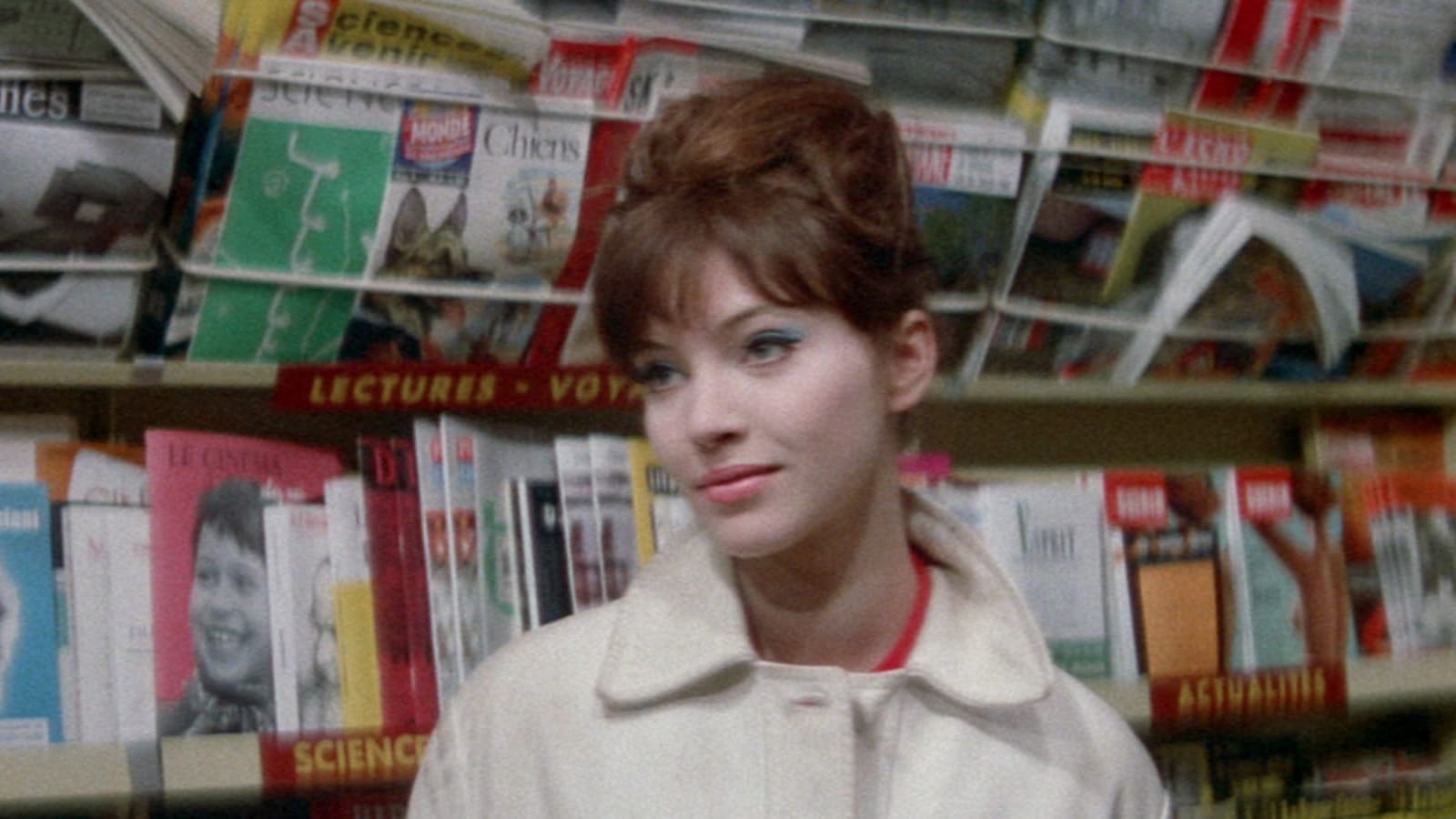
The French have long held their place as the arbiters of many things, from the inimitable architecture of The Eiffel Tower and gothic design of The Notre-Dame, to the precious vineyards of Bordeaux and masterful paintings of The Louvre, but if there’s anything they’ve succeeded in since its inception, it’s the intangible artistry that flickers in the silver screen. The dawn of this beloved medium can be traced back to two French brothers, Auguste and Louis Lumière, both of whom released the world’s first commercially projected images with a rudimentary camera-projector in 1895. Later screenings followed, one of which had Georges Méliès in attendance, inspiring him to eventually go on and direct A Trip to the Moon in 1902. This endeavor would later be recognized as the birth of Science Fiction film, and perhaps the most influential silent short of all time.
The industry has seen a significant evolutionary shift since then, and France has never once wavered on its dedication to the cinematographic field. Several important film movements evolved over the course of the following century, not least the universally influential boom of The Nouvelle Vague. Francophiles and cinephiles alike have undoubtedly seen many of the popularized classics, milestones like Jean-Luc Godard’s Breathless and Jean Vigo’s L’Atalante proving to be mandatory viewings. This list aims to sing the praises of overlooked gems that have been pushed to the wayside over time, despite their many fluctuating attributes.
10. A Gorgeous Girl Like Me (1972)
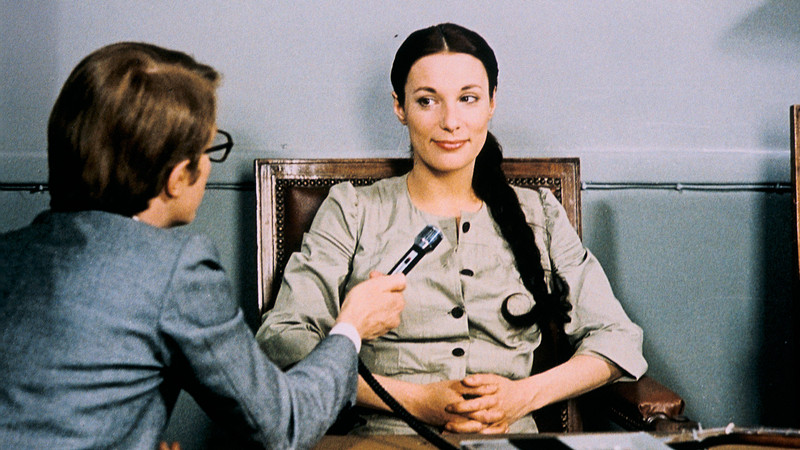
Aside from Jean-Luc Godard, François Truffaut is quite easily the most renowned name in all of French cinema, many of his films such as Jules et Jim and The 400 Blows changing the art form forever. Often hailed the father of French New Wave, Truffaut was at the forefront of the revolutionary movement, taking the cinematic grammar of Alfred Hitchcock and building on it in a wholly original way. Luckily for us, the French auteur’s filmography stems well beyond his more celebrated works, leaving us with many unappreciated films to delve into, and A Gorgeous Girl Like Me is no exception.
This screwball comedy is a highly underseen entry from Truffaut, comprised of a wide-ranging concoction of genre ingredients. Part prison movie, part musical, part sociological thesis, this ninety-eight-minute foray into absurdism offers so much more than its reputation (or lack thereof) suggests, with a beautifully zany score from famed composer Georges Delerue, and stunning performances from Nouvelle Vague regulars Bernadette Lafont and André Dussollier.
To begin with, the film starts as an unrequited love story between two individuals, gradually sliding into more unpredictable territory. Dussollier’s Stanislas Prévine, a young sociology student preparing his thesis on criminal women, begins an intimate interview process with alleged murderer and prisoner Camille Bliss, whose youthful allure and energizing charisma is too much for him to deny. Slowly but surely, we learn the history of Lafont’s beguiling character, and how she came to be in the unfortunate position she’s in. As Stanislas wrestles with his abilities to keep things professional, Truffaut’s vérité style floods to the fore, making for a film that’s not only brimming with sardonic humor, but true to the staples of French filmmaking.
9. Zazie dans le Métro (1960)
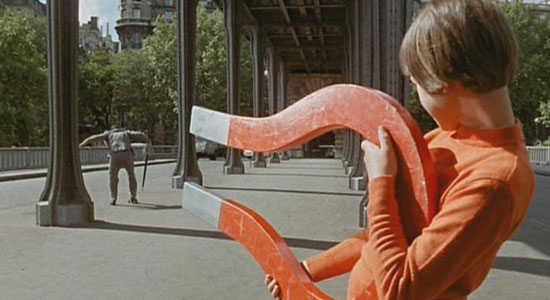
If you thought A Gorgeous Girl Like Me was as impulsive and farcical as it gets, try Louis Malle’s overlooked comedy Zazie dans le Métro. Alongside Truffaut, Malle is regularly considered one of the greatest of French directors, films like My Dinner with Andre and Elevator to the Gallows often standing out as his better-known achievements. These films, however, differ from Zazie dans le Métro in the fact that they follow more cinematic conventions, making them slightly more palatable to mainstream audiences.
Attempting to describe this film is no easy task. Released in 1960 during the initial rise of French New Wave, Malle’s anarchic vision makes the most experimental films of the time look tame; an endless supply of editing tricks and visual gags setting it well apart from the rest. The plot remains a relatively simple one: an adventurous ten-year-old takes a trip to Paris for a weekend with her raffish uncle. The result, on the other hand, is as complex as it gets, a carnival of uproarious slapstick and innovative cinematic technique.
This is, of course, a film that isn’t for everyone, but when judging it by its own merits, it’s evidently deserving of a lot more recognition. Other than Richard Ayoade citing it as a major inspiration for his lovingly crafted coming-of-age flick Submarine, Zazie has somewhat slipped under the radar in comparison to Malle’s other work, which is regrettable when considering just how much fun it is. If you’re a filmgoer who’s always on the lookout for something unique, or in search of a gamble as opposed to an overdone story, look no further than Malle’s chaotic masterwork.
8. La Pointe Courte (1955)
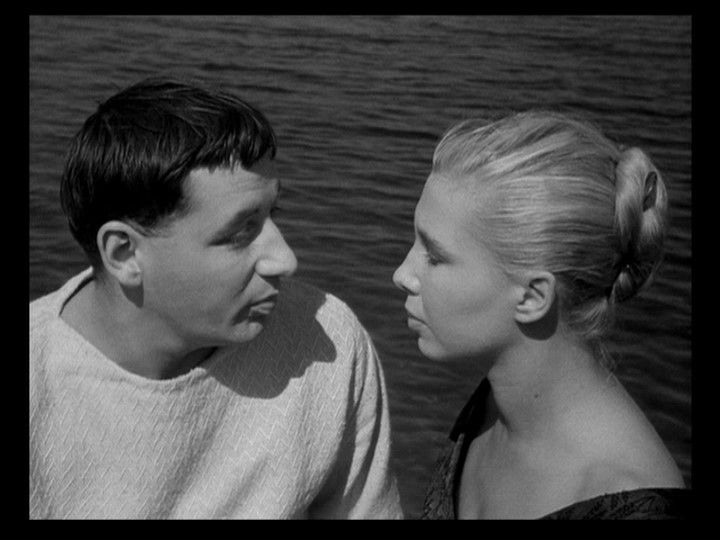
Compiling a list on French cinema and not including Agnès Varda virtually classifies as a cardinal sin, so what better than La Pointe Courte as an example of one of her most underpraised achievements. This ravishing black and white marriage story has no shortage of standout qualities, its panoramic photography complimenting the heartrending performances perfectly. Set in an industry-dominated port town called Sète, sat proudly on the coast of Southern France, Varda’s eye wanders between two distinctive styles, one which captures the cultural quirks of life from a documentary perspective, and another that tells a more straightforward narrative.
It’s surprising that La Pointe Courte doesn’t get the credit it’s entitled to, especially when considering Varda’s reputation as one of the few women to help bring French New Wave into action. For its 1955 release date, this came to the screen long before Godard and Truffaut had even made a dent in their careers, further proving that the beginnings of the esteemed film movement are as much feminine as they are masculine, if not more so.
Maybe the most impressive thing about La Pointe Courte though, is the fact it’s a debut. With nothing but photography experience prior to filming, Varda managed to flesh out the beginnings of an entire cinematic revolution, with a cast and crew that barely exceeded a dozen people. In actual fact, this film predates many corners of European cinema, from the Swedish shore-gazing of Ingmar Bergman’s Through a Glass Darkly, to the gloomy, love-doomed atmosphere of Alain Resnais’ Hiroshima Mon Amour. If any debut needs more recognition, it’s this one.
7. The Man Who Sleeps (1974)
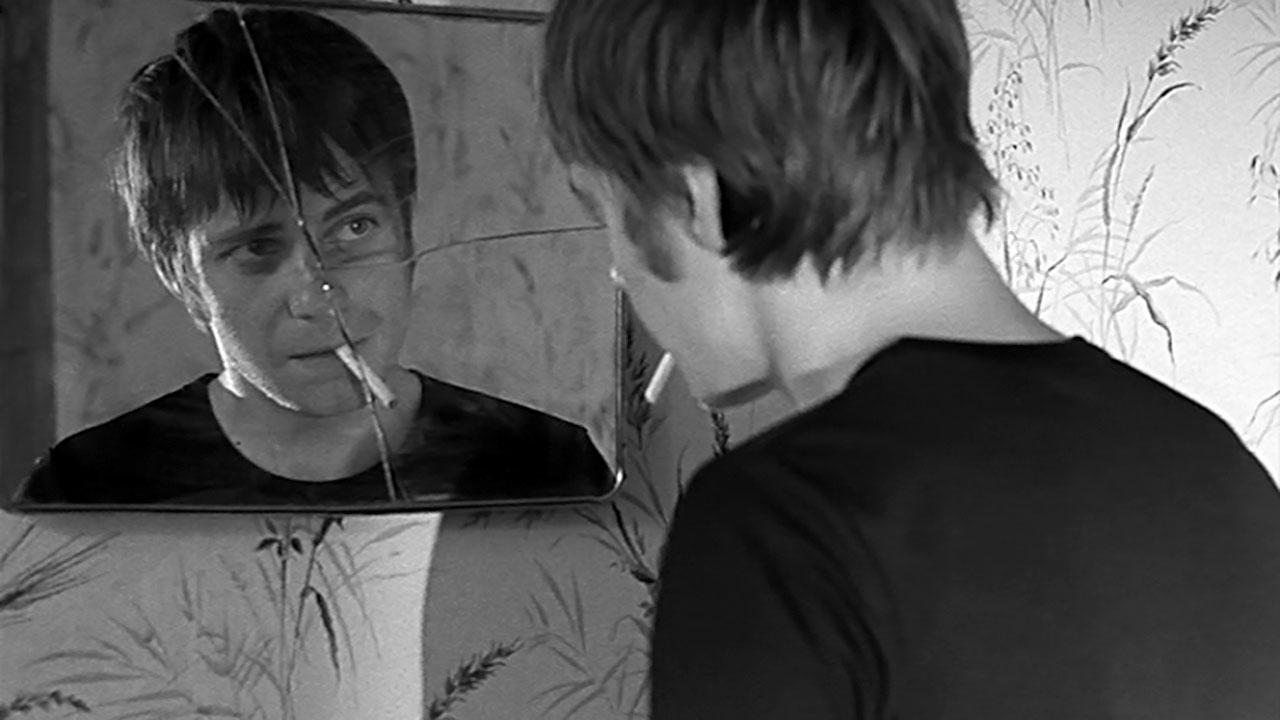
Adapted from the deeply existential source material by novelist Georges Perec, little-known director Bernard Queysanne demonstrates a resounding apathy for the world in his unforgivably forgotten 1974 debut, surrealistic thrills and impending doom colliding to create what can only be described as some of the most relentlessly aggressive fatalism any art form has ever seen. Imagine something close to the internal commentary of Travis Bickle’s hateful tirades from Taxi Driver and you’re on the money, but unlike the slow, meditative nature of Scorsese’s masterpiece, Queysanne’s magnum opus runs at an unshakeable speed.
Following the life of a single character, a twenty-five-year-old university student who finds himself steadily giving up on his commitments, Queysanne crafts a world of palpable depression. Few films whittle sadness down so effectively, lead Jacques Spiesser’s facial expressions doing much of the legwork, with not a single word spoken by the actor during the entire runtime. Over the stark black and white imagery, a woman speaks a poetically inclined, Godardian voiceover from his perspective, a sort-of phonetic instrumental to the man’s life, and all its hopeless mundanity.
Of every film on this list, The Man Who Sleeps might be the most unsung of them all. The directorial talent on display here is just godly, with swooping, majestic camera movements and confounding visual trickery, recalling boundary-breaking montage pieces like Dziga Vertov’s Man with a Movie Camera or Chris Marker’s Sans Soleil. Film essays are rarely this bleak, so make sure to prepare yourself going in. This is loneliness at its most unflinchingly portrayed, a masterpiece of penetrating cynicism, and it deserves to be championed as such.
6. Jean de Florette (1986)
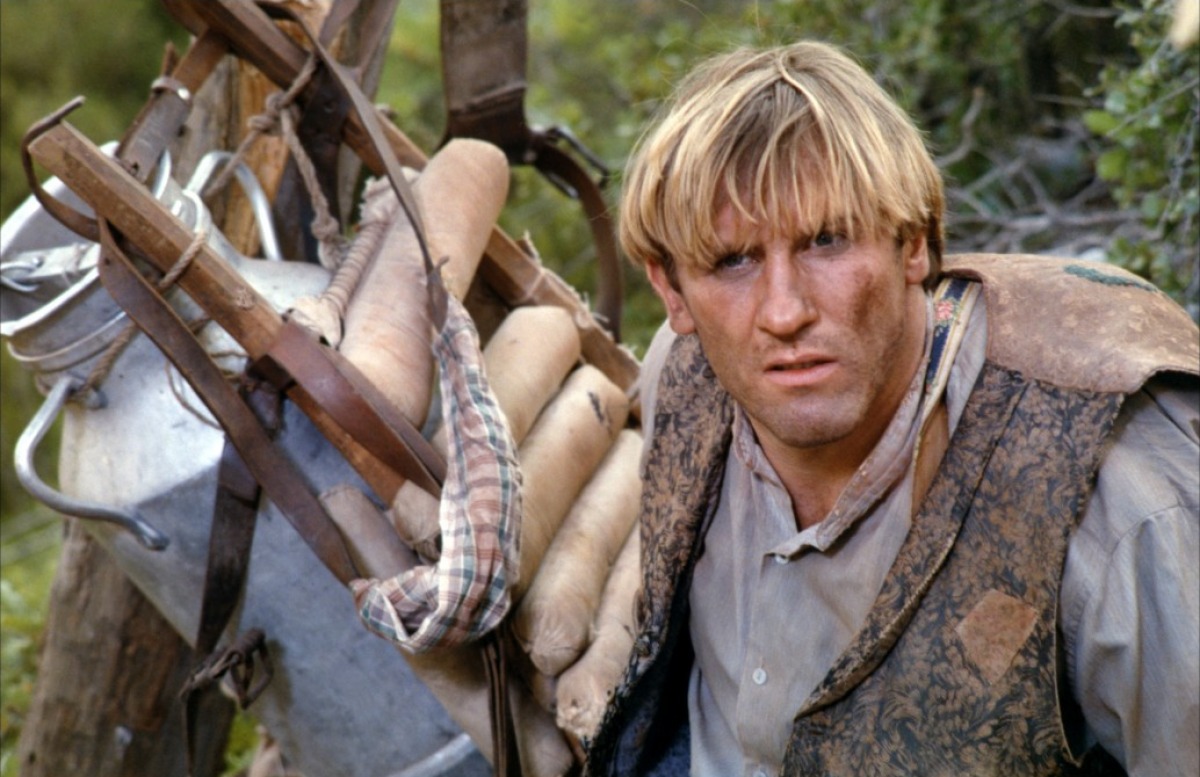
Another gut-punching French adaptation, Claude Berri’s Jean de Florette is a film that was highly revered on release, but over the years it’s been strangely amiss from general conversation. The picture takes place in the rolling hills of Provence and tells the stories of Yves Montand’s aging farmer César, and his nephew, Daniel Auteuil’s Ugolin, who together cast their envious eyes on the desirable spring-water of their neighbor’s land.
As you can imagine, a moral tale of scheming and greed unravels, the likes of which has been told many times before, but never in quite this way. The important thing to note is that this particular film bears a deeper meaning when screened consecutively with its sequel Manon des Sources, the two pictures acting as a counterbalanced two-parter the same way Francis Ford Coppola’s first two Godfather films did over a decade earlier. At the end of Manon des Sources comes one of cinema’s all-time greatest twists, a moment of revelation that would take even the thickest-skinned viewer’s breath away in an instant, making the near-four-hour journey beyond worth it.
As fate would have it, both of these films are outrageously forgotten, and a reprisal of love for Berri’s sympathetically told fable is about due. As agricultural epics go, this has all the capitalistic hunger of There Will Be Blood, and all the photographic grandiosity of Days of Heaven, leaving us with an overlooked masterpiece that tugs at the heartstrings in every conceivable way. At its core, it showcases the natural beauty of the world in all its glory, and how that’s always juxtaposed with the inherent cruelty of it. Fate isn’t fair, and sometimes the good and the pitiable fail whilst the evil and greedy prosper. The incongruous facts of life.